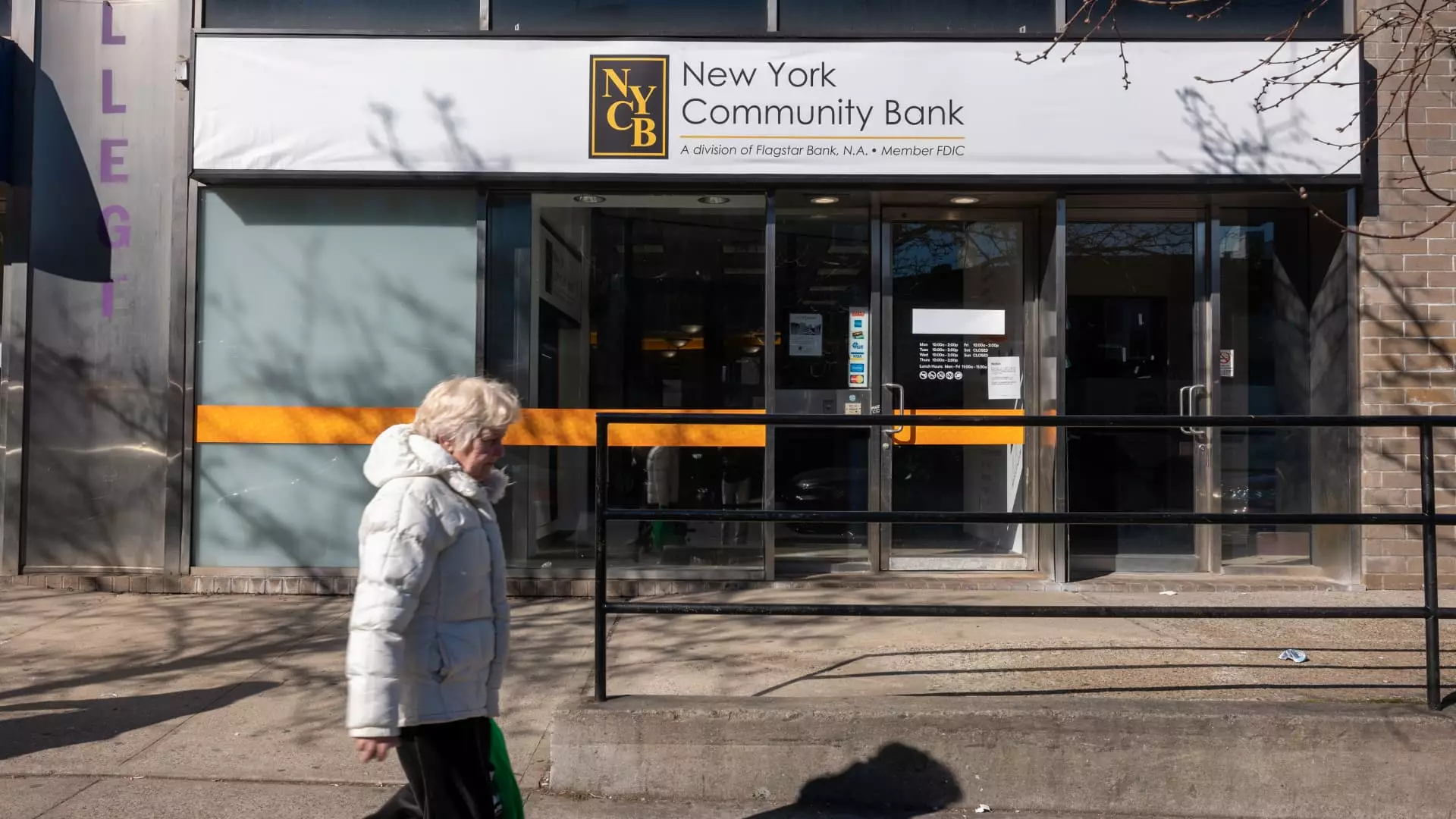New York Community Bank (NYCB) recently announced a significant loss in deposits, with a 7% decrease in the month preceding a capital injection of over $1 billion from investors, including former Treasury Secretary Steven Mnuchin’s Liberty Strategic Capital. The bank reported a total of $77.2 billion in deposits as of March 5, down from $83 billion on February 5, the day before Moody’s Investors Service downgraded its credit ratings, leading to a negative spiral of events for the institution. NYCB also revealed a reduction in its quarterly dividend from 5 cents to 1 cent per share, marking an 80% drop from its previous dividends.
Stock Market Turmoil and Investor Confidence
Prior to the announcement of the capital injection, NYCB experienced a sharp decline in its stock value, with concerns revolving around the bank’s loan portfolio and deposit base. The stock plummeted below $2 per share before rebounding slightly and closing higher after the injection was disclosed. The involvement of private equity investors, particularly led by Mnuchin’s Liberty Strategic Capital, has sparked optimism among investors regarding the bank’s future prospects.
The capital injection is viewed as a crucial lifeline for NYCB, providing the bank with the necessary resources and time to address looming questions about its exposure to New York-area multifamily apartment loans and reported “material weaknesses” in loan review processes. Mnuchin expressed confidence in the bank’s ability to overcome these challenges, emphasizing the strengthening of the bank’s franchise with the additional capital. He highlighted the need to address perceived risks in loans, particularly New York office loans, and acknowledged the importance of building reserves over time.
Strategic Changes and Future Plans
Incoming CEO Joseph Otting outlined plans to enhance NYCB’s capital and liquidity levels while reducing its reliance on commercial real estate loans. The institution is considering asset sales, reserve building, and write-downs as part of its strategic initiatives. Piper Sander analysts led by Mark Fitzgibbon suggested that NYCB may need to reduce its assets below the $100 billion threshold to mitigate regulatory scrutiny on capital and risk management practices. Executives emphasized the importance of maintaining depositor relationships following credit rating downgrades, indicating the use of waivers to retain custodial accounts.
Despite the positive implications of the Mnuchin investment for regional banks, analyst Mike Mayo from Wells Fargo cautioned about the potential challenges in the commercial real estate sector. As loans are due in the coming years, there may be an increase in problems faced by lenders, signaling a turbulent period for the industry as a whole. The road to recovery for NYCB involves careful strategic decisions, asset management, and building investor confidence to navigate through the current crisis.
The recent developments at New York Community Bank underscore the importance of robust financial management, risk assessment, and timely decision-making in the banking sector. The institution’s journey towards stability and growth will require a concerted effort from leadership, investors, and regulatory bodies to restore confidence and ensure long-term viability in a highly competitive market environment.

